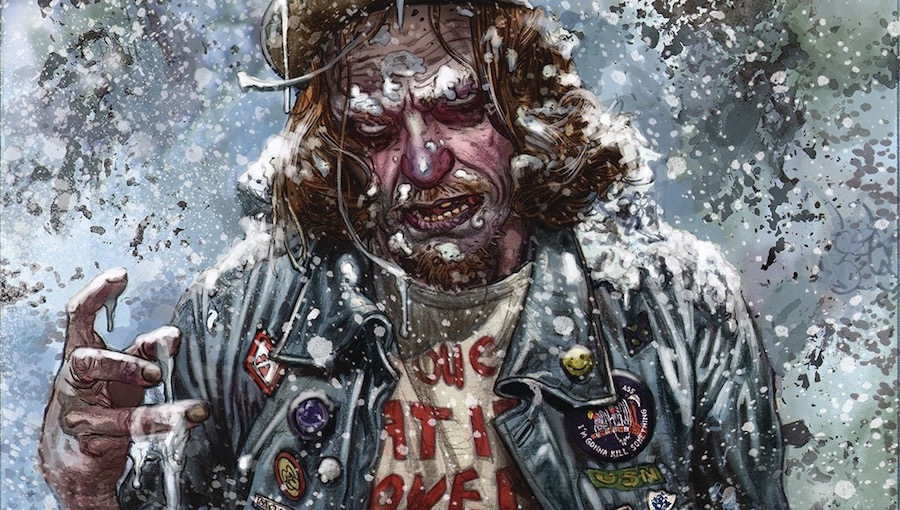As we follow Shadow on his journey through America, the lines between fantasy and reality continue to blur. A brilliant piece of modern-day mythology, American Gods takes the world that we know and lets gods, creatures, and magical beings in. Dreams become indistinct from reality, the dead don’t stay dead, and we never really know who or what to trust. Shadow is not really concerned but just rolls along with all of the weirdness and chaos happening around him. Sometimes, I don’t know whether to laugh or cry, but I think that’s part of the Gaiman fun that P. Craig Russell and Scott Hampton have captured so well.
This issue is all about death, but it is hard to understand what death really means in this version of America. The differences between life, death, and immortality are blurry. Shadow has been able to communicate with the dead and with gods, so the dead are still able to influence the real world, and the living seem to have few limitations. I think it is intentional that we struggle to understand the relationship between different bodies, because it adds to the mysterious ambiance of the series.
We can also see this with animals. The animals in American Gods are rather strange. The cat takes it to a new level in this issue. I’m not sure whether humans are supposed to feel one with animals or whether animals just have their own fantastic powers that we cannot understand. Humans, animals, gods, and the other creatures seem to be connected in some way. They all fuel one another and also feed off the energy of the land—though, it’s a dark, gothic energy that Hampton has masterfully created. There’s a very organic feel to the series that is rather disturbing but creates mystery and intrigue.
Mad Sweeney—the leprechaun—appears to be a walking disaster. I love the magical elements associated with his character—the hat of gold and the epiphany under the rainbow. Mad Sweeney also gives a history lesson about the Irish gods. This just adds to the series’ growing catalog of mythology mixed with history that Russell and the creative team have provided in the series. Sweeney is wiser than he appears, and even though he is a perfect depiction of Irish stereotypes, his presence reminds us to look at what the Irish have done for America.
We also get to learn about Shadow’s childhood as a victim of bullying who worked hard to become strong to punish his oppressors. Shadow seems so passive now, but he still does carry himself with a don’t-mess-with-me kind of attitude. He also has a strong sexual drive. I think Shadow’s strength also has a lot to do with his confidence. He is a compelling character, because he is simultaneously tough and easy-going.
Wednesday sets the journey back in motion to head into the next installment. Shadow’s disorientation at the end mirrors my own, as I have lost track of time and space during this adventure. That also helps to blur fantasy and reality—all we know is that we will keep journeying forward, because, apparently, a big storm is on the horizon.

